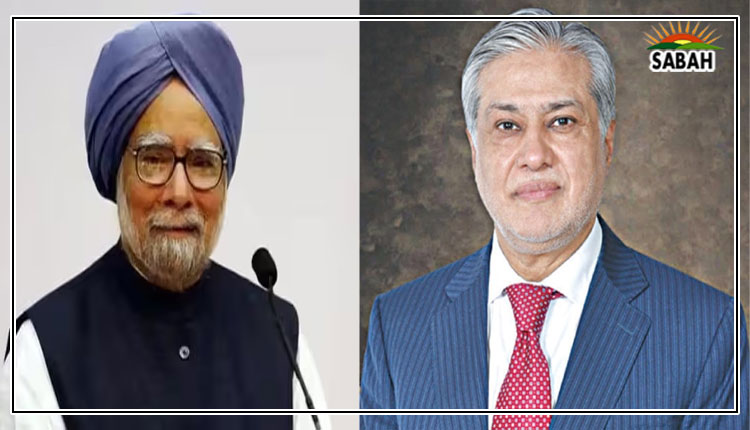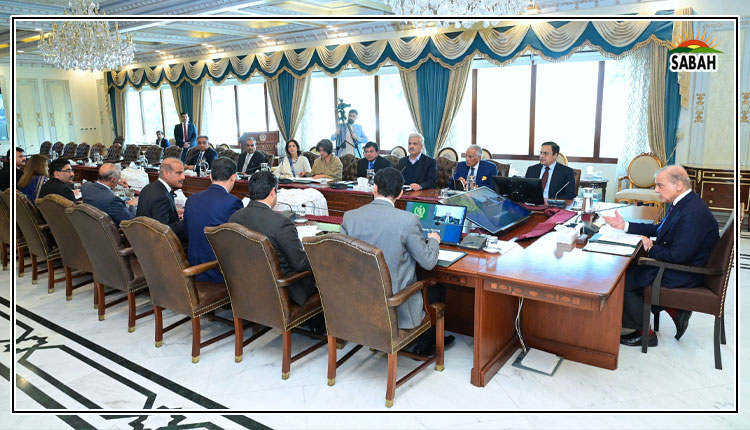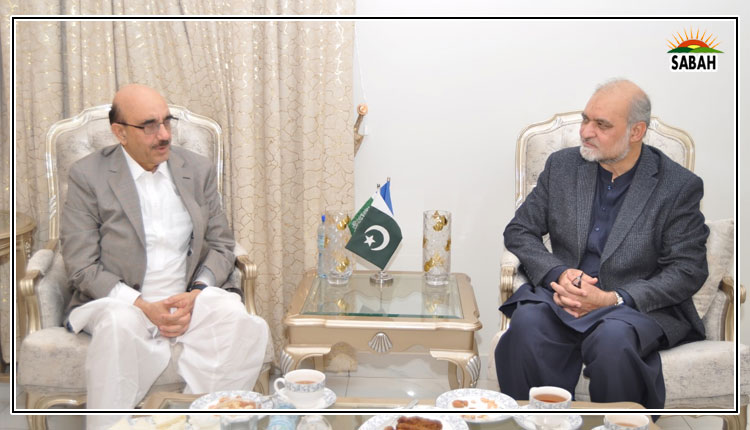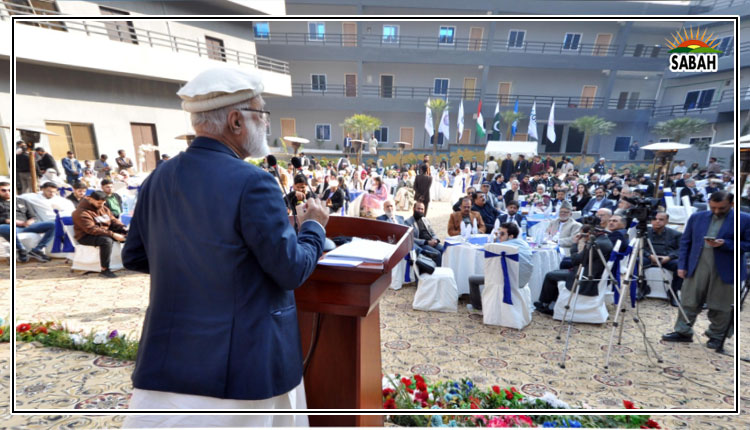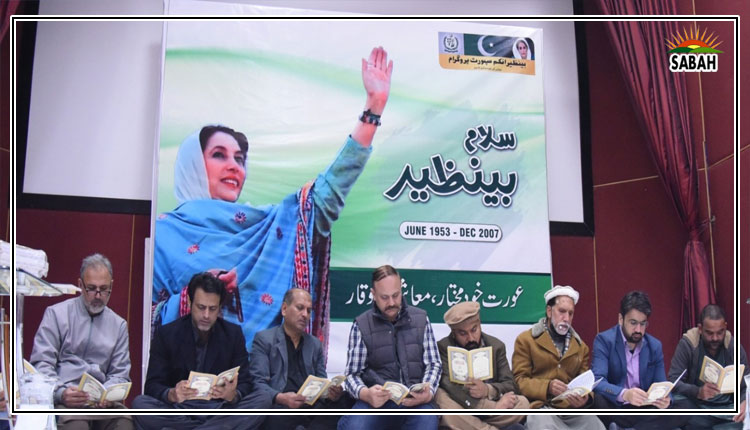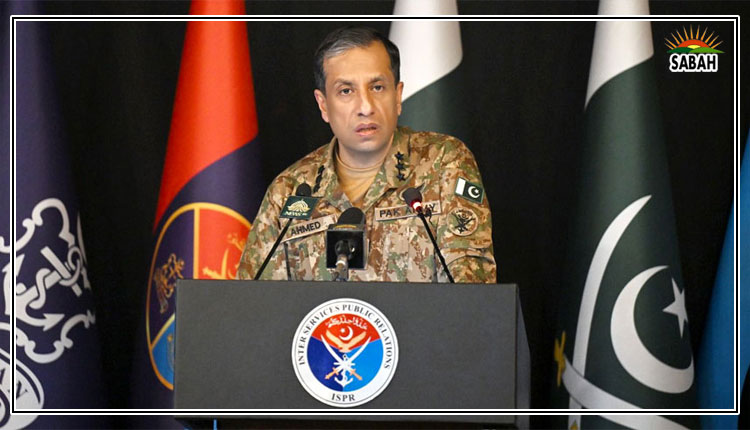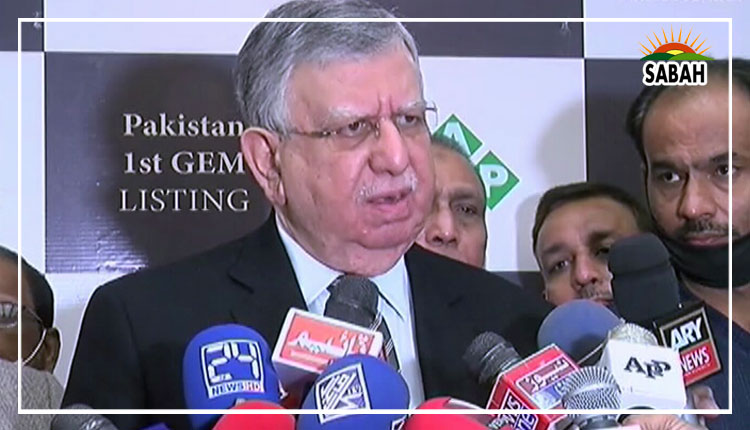Govt would not increase taxes in the supplementary budget: Shaukat Tarin
KARACHI, Nov 26 (SABAH): Adviser to the Prime Minister on Finance and Revenue Shaukat Fayaz Ahmed Tarin on Friday assured that the government would not increase taxes in the supplementary budget it plans to introduce in the National Assembly following the agreement with the International Monetary Fund (IMF) earlier this week.
However, certain exemptions will be withdrawn; he shared while talking to the media in Karachi.
When a reporter asked the adviser to comment on the mini-budget, Shaukat Tarin remarked that it seemed the reporter wanted to create sensationalism. “Taxes will not increase. Certain exemptions will be withdrawn.
“In March, the government had signed for [removal of] Rs700bn in exemptions and [imposition] of new taxes, after which it got $500 million,” he recalled.
He was referring to the release of $500m by the IMF in March after approving four pending reviews of the country’s economic progress following the government’s decision to implement the withdrawal of corporate tax exemptions and put in place a mechanism for automatic electricity power tariff increases.
“When I came [as finance minister], I had said we will not allow an increase in taxes. We will not allow [the IMF] to impose more taxes on people who are already paying them.”
The adviser said his ministry had stood firm on its stance of not increasing taxes during negotiations with the IMF.
Shaukat Tarin said the IMF questioned why Pakistan had distorted its tax system, adding that the Fund’s argument held substance. “They say, ‘you have imposed 17 per cent sales tax on some [sectors], zero on some and 10pc on some. Take your sales tax and give them targeted subsidies [instead]’.”
Talking about the fertiliser industry, the adviser said the government provided subsidised gas to companies as well as did not impose any tax. The combined subsidy provided to the fertiliser industry was around Rs150 billion, he said, questioning: “Is this reaching our farmers?”
The government will use the Ehsaas database to provide direct subsidy to farmers instead, he said. The adviser criticised people who were making speculations about the exchange rate.
“First it was said that [rupee] was falling because the deal with IMF was not reached. The agreement happened […] The benchmark is the real effective exchange rate. It compares your currency to the currency of your competitors and says your exchange rate should be around [the specific figure]. Experts say that according to the real effective exchange rate, the rupee should [be traded] around 165 or 167 or 168,” he explained.
He refuted rumours that the rupee will be demonetised, stressing that the government will not take any steps that will affect businesses’ confidence or create distortion in the market.
“We are taking some steps because of which the rupee will go on the other side. They (speculators) will be badly defeated so don’t get into this kind of speculation. Rupee will move on both sides,” he said.
Shaukat Tarin said that all taxes on petrol have been abolished and that all benefits from the reduction in oil prices will be transferred to the people.
Tarin said if we do not refinance, something else will have to be done. “The real effective exchange rate should be close to 165, 166. Our money is undervalued by Rs10,” he said, adding that there were rumours that lockers would be seized, but no such thing will happen.
Tarin said that our problem is with the lower middle class because they are being exploited. “Our problem is not of poverty, but of inflation,” he said, adding that according to the World Bank, poverty in the country has decreased by 1%.
Inflation in the United States has reached 9% and the US has taken action on the price of oil, which is coming down, he said.
The finance advisor said that the government will not allow any increase in taxes, and that no new taxes will be imposed. “Only tax exemptions will be abolished and all taxes on petrol have also been abolished. All the benefits of reduction in oil prices will be passed on to the people,” he said.



